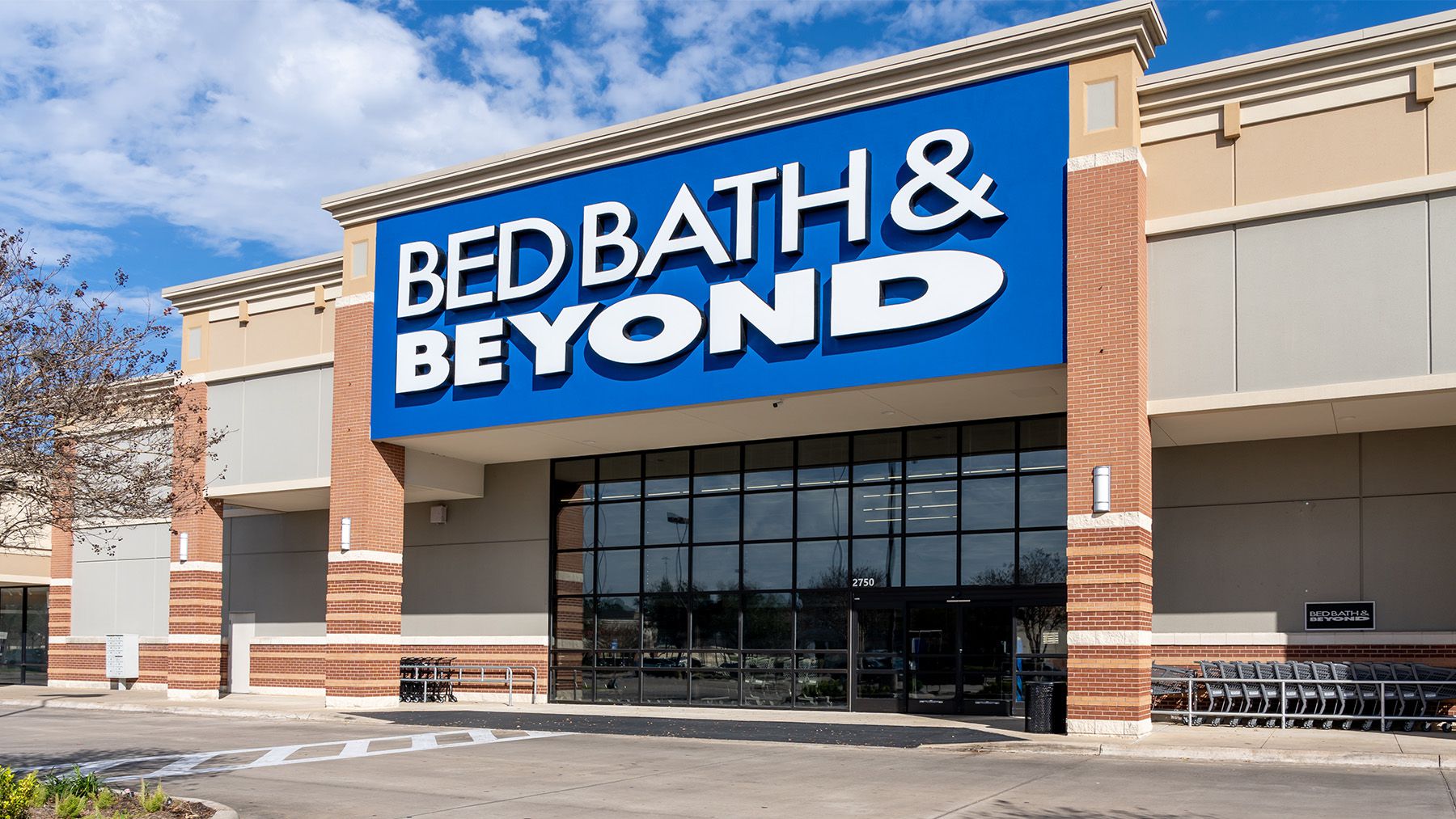
Bed Bath & Beyond Inc., the big-box retailer that for decades provided essential shopping for college dorms, wedding gifts and new homes, will close all of its stores and liquidate inventory over the next two months after its turnaround failed.
The Union, New Jersey-based company filed for Chapter 11 bankruptcy on Sunday, a move that came months after saying it was weighing options to restructure debt, with “substantial doubt” about its ability to keep operating. The filing will allow it to begin liquidating 360 Bed Bath & Beyond stores and 120 Buy Buy Baby shops immediately, though the company said it’s also searching for a buyer for some or all of its assets.
The shuttering of one of America’s most well-known home goods retailers will put the jobs of thousands of employees — and their retirement savings and severance pay — on the line. The company currently employs about 14,000 people in the US and Puerto Rico, and among its initial requests in bankruptcy is to pay about $76 million of employee wages and benefits.
The timing of the wind-down will be swift, according to court documents. Bed Bath & Beyond expects all sales at the remaining brick-and-mortar stores to be completed and the properties vacated by June 30.
“We appreciate that our customers have trusted us through the most important milestones in their lives,” the company said in an email to shoppers. “Our stores are open and serving customers. However, we have initiated a process to wind down operations.”
Bed Bath & Beyond estimates that aggregate net proceeds from all sales will be approximately $718 million, according to court documents, and the retailer has about $1.8 billion in total funded debt obligations. The company estimated it had assets of $4.4 billion and total debt of $5.2 billion as of late November, and the number of creditors is between 25,001 and 50,000, with BNY Mellon having the biggest unsecured claim of $1.18 billion.
The retailer told customers it would stop accepting coupons and membership discounts on April 26.
When she got the email announcing the bankruptcy, long-time customer Rebecca Day had one question: “What time does it open?” Day arrived at one of the chain’s sprawling Manhattan stores just after 10 a.m., determined to use the last $60 in her account.
“I want to make sure I get everything that I am owed as part of the membership,” she said. “I guess there’s part of it too that I just wanted to be back in here one last time.”
She was one of a steady stream of shoppers who wandered in to buy coffee grinders, shower heads and mini waffle makers — and to pay their respects to a company they said they’d long relied on for quality and fair-priced home goods, from sheets and blankets to tableware and bathroom essentials.
Liz Hecht, 23, learned of the planned liquidation from her mother, who called her to break the news. Hecht remembers her mom stacking the company’s famous 20 percent discount coupons and going dorm shopping in the vast aisles.
“I love Bed Bath & Beyond, so I was very upset,” she said.
Looking for a Buyer
For all the details in the shut-down plan, the company also said it may “pivot away” from store closings if it draws suitors.
“Bed Bath & Beyond has pulled off long shot transactions several times in the last six months, so nobody should think Bed Bath & Beyond will not be able to do so again,” the filing said.
The company’s chief financial officer, Holly Etlin, will serve as the chief restructuring officer to manage the bankruptcy.
“Defying all expectations over the past four months, Bed Bath & Beyond secured credit agreement waivers and amendments and was able to access the equity markets in February and March in a last-ditch effort to avoid bankruptcy,” Etlin said in a sworn statement.
“But, in-store sales continued to decline — with fourth-quarter sales falling by almost 1 billion dollars year over year — and strained vendor credit relationships, which led to a lack of inventory. And notwithstanding painstaking, creative, and exhaustive efforts to right the ship along the way, Bed Bath & Beyond is simply unable to service its funded debt obligations while simultaneously supplying sufficient inventory to its store locations,” the statement said.
The retailer had received a last-minute lifeline from the hedge fund Hudson Bay Capital Management — a deal that would have given Bed Bath & Beyond more than $1 billion under certain conditions. But the company failed to meet stock-price minimums, and the deal was terminated. Bed Bath & Beyond then said it would sell more shares in an effort to stave off a filing.
A unit of Sixth Street Partners is providing the company with a $240 million loan to help it fund itself in bankruptcy.
The demise of Bed Bath & Beyond, which was founded in 1971 and grew into one of the country’s largest big-box chains, is not, as some pundits have insisted, an example of the inevitable decline of brick-and-mortar retailers that struggle to compete against Amazon Inc. Instead, Bed Bath & Beyond is largely responsible for its own undoing, according to suppliers, analysts and former managers and employees. For nearly a decade, the retailer’s leadership teams made decisions that pushed the company, little by little, toward the brink of financial collapse.
In recent years, shoppers retreated, and sales plummeted. Earlier this year, Bed Bath & Beyond was preparing to file for bankruptcy. But, to the astonishment of many suppliers and analysts, the retailer inked a complex eleventh-hour financing deal at the beginning of February to sell its shares to hedge fund Hudson Bay. The deal raised $360 million — far short of the $1 billion goal.
As Bed Bath & Beyond customers now pick over the store’s remaining inventory, they considered where they’d shop once it’s gone.
After Hecht redeems her last coupon, she’ll frequent CVS and Amazon; Akira Smith, 51, said he’d start going to Home Depot. Rebecca Day says there’s nothing in walking distance that compares.
“It’s where we went for household stuff,” she said. “I don’t know what we’re going to replace it with.”
By Jeremy Hill and Sarah Holder
Learn more:
Are Department Stores Still Relevant?
Selfridges’ sale for a lofty $5.4 billion suggests there is still life in the department store model. But how to grow in a shrinking category?



